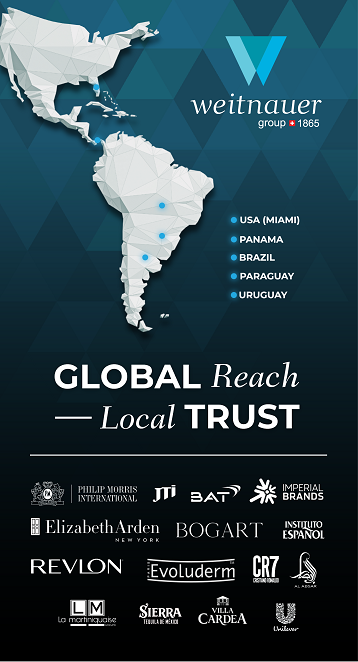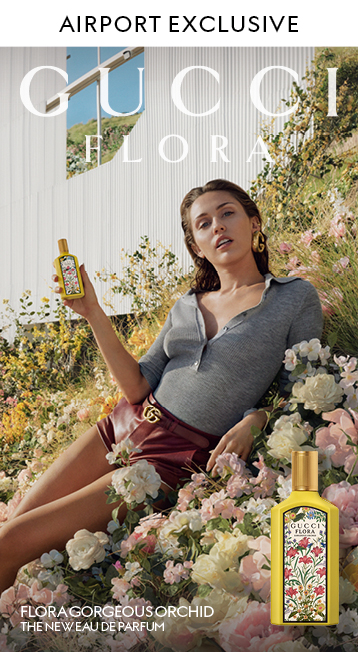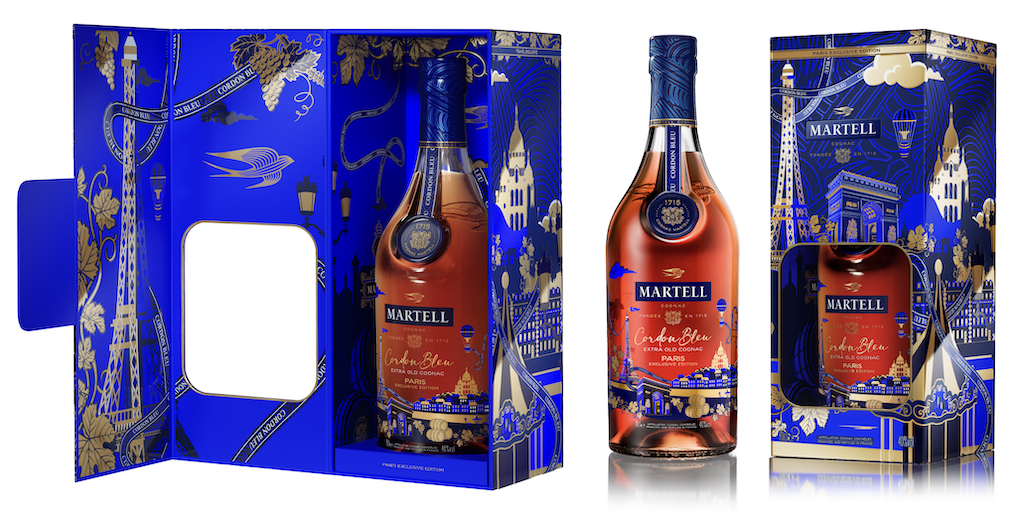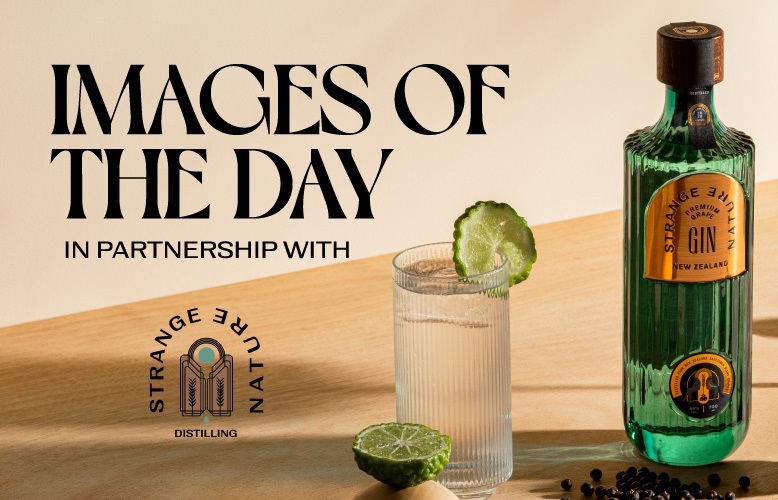EUROPE. The Central and Eastern European Travel Retail Association (CEETRA) last week updated members on a series of vital industry topics at its latest Travel Retail Forum, hosted by Warsaw Chopin Airport. The event gathered regional airports, airlines, tourism organisations, retailers and brands.
CEETRA Chairman Andrzej Milaszewicz stressed the organisation’s objective to provide a platform for brands, airports and retailers to meet and connect, and said that local and regional brands can count on its support.
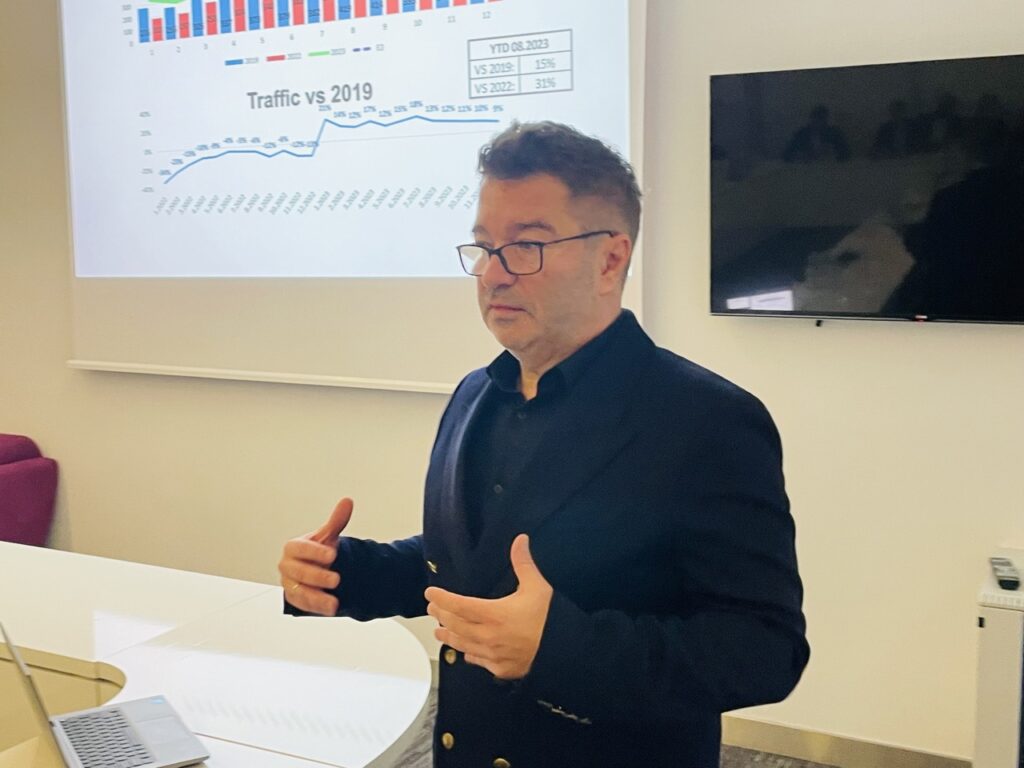
The association has also been active this year engaging with policymakers in the region. Milaszewicz highlighted the strong recovery of passenger traffic in Poland, which at some airports has exceeded pre-COVID levels.
m1nd-set Chief Operating Officer Clara Susset outlined the analyst’s latest data on passenger behaviour in the region. “43% of duty free purchases here are made for the purpose of gifting; this is radically different from what we observe globally”, she said.

Post-pandemic, she observed, people were purchasing more for their own consumption, but gifting has quickly grown as a purchasing driver. Assortment, packaging, customer advice and other elements of the mix are affected by this. Also, 64% of shoppers in Central & Eastern Europe are impulse buyers, compared to 57% share worldwide.
M1ndset data shows that 60% of shoppers said their purchase was impacted by interaction, but only 33% were in contact with sales staff. “[This means] huge potential to drive the interaction, which will then have an impact on conversion”, she added.

Witold Janiszewski, Member of the Management Board at airport group PPL, welcomed participants to Chopin Airport and focused on some highlights of the growth performance at the airport.
Traffic is recovering strongly at Warsaw and several other airports. He added that “many people of Ukrainian and Belarus nationality are now travelling from Poland.”
Some 49% of passengers are purchasing products, with 38% consuming food & beverage. Although there is demand for retail space, the airport’s current 11,200sq m of commercial space is unlikely to be expanded soon.
“We have to manage between the comfort of passengers and the space for retail,” he said. He announced that the airport will launch a car valet service, claimed to be a first in the region.

Changing the focus to regulatory matters, Nick Hodsman, an industry expert on the topic of illicit trade, shared results of a recent report on the economics and regulation of tobacco products in duty and tax free.
On the industry contribution to the economy, he cited “approximately 50,000 jobs that are the direct and indirect contribution on a European level.”
His report also found that the duty free industry is the most secure retail channel in the world.
Specifically, “tobacco producers have to ship to bonded warehouses, and are under licence. The retailers are under licence, too, and need to report on any products which they can’t prove to have legally left their stores.”
The report suggests that less than 0.1% of illicit trade is linked to the duty free industry. “Tell me about any other industry where to purchase the product you have to present your boarding pass,” he said.

Even so, he acknowledged that illicit trade does impact the industry, with for example some “counterfeit products labelled duty free, and consumers are led to believe that they are duty free. This is a threat to the industry.”
ETRC Policy and Communications Officer Nicole Regecová summarised a report titled ‘Mapping and Impact Analysis of EU Sustainability’, which is a service for members of the organisation as well as regional associations such as CEETRA.
It analyses impact, assesses risks and opportunities and includes recommendations for strategy related to legislation around sustainability. For example, the European Commission proposed a Green Claim directive, designed to bring clarity to voluntary environmental claims and to environmental labelling schemes. Several other initiatives are also detailed, with some already implemented, and others still outstanding, which may change priorities.
Global Polish Vodka Ambassador Maciej Starosolski pointed out how important geographically identified products (GI products) are for the entire value chain, from farmers and distillers via spirits companies to retail channels.
Since 2013, local legislation requires Polish vodka to be produced locally, which protects smaller farmers and distilleries. From 215 distilleries in Poland 30 years ago, only 50 are left today, and even those would not have survived if it wasn’t for this regulation, he said.
For brands, it also allows better brand story telling, much like other GI products such as Scotch whisky, Mexican Tequila or other items. The protection does allow bottling outside of Poland, which leads to lower transportation costs and consequently lower CO2 consumption.
Monika Borys, Global Brand Manager at beauty house Dr Irena Eris, shared details of the luxury brand’s strategy, which was founded by Polish pharmacist and researcher Irena Eris and is today exported to over 40 countries.

She emphasised the importance of the duty free channel and its membership of TFWA. With nine patents and 15 applications, the company continues to put an emphasis on testing and research, and aims to ensure that its brand fully delivers on its anti-aging promises.
“Retailers in Poland confirm that our brand has the highest number of loyal consumers, which is 60%”, she said. To local or regional brands wanting to enter the duty free market, she suggested to first “be strong in your local market, be present in other international markets, and then target duty free in that market.”
Alongside Dr. Irena Eris the Travel Retail Forum was supported by regional brands including Wyborowa.
Guests had the chance to join a tour of the Polish Vodka Museum followed by a networking dinner courtesy of Wyborowa Pernod Ricard on the evening before the event. ✈





